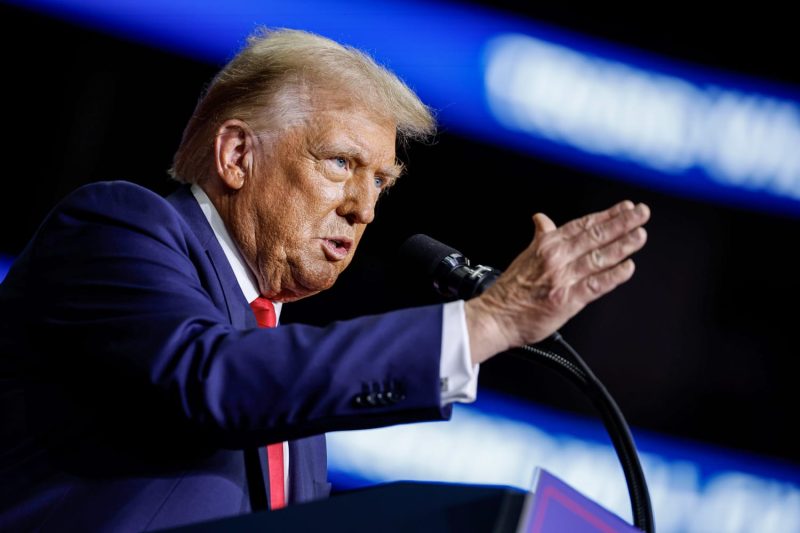
Trump’s Tariff Tantrum Sparks Lobbyist Frenzy and Loophole Hunt Among U.S. Companies
In a recent turn of events, President Donald Trump’s tariff threats have sent shockwaves through U.S. companies, prompting them to scramble for lobbyists and loopholes to navigate the uncertain economic landscape. The potential impact of these tariffs on businesses across various industries has sparked a wave of concern and uncertainty among stakeholders.
The looming threat of tariffs has forced companies to reassess their supply chains and operational strategies to mitigate potential losses. Lobbyists have quickly become a sought-after commodity as businesses seek to influence policymakers and secure exemptions from the tariffs. This rush for lobbyists highlights the critical role that political connections play in shaping economic outcomes for companies facing regulatory challenges.
Furthermore, the search for loopholes has become a prevalent strategy for companies looking to sidestep the adverse effects of tariffs. By exploiting legal ambiguities or finding alternative sourcing options, businesses are attempting to minimize the financial burden imposed by the tariffs. This behavior underscores the creative tactics that companies are employing to protect their bottom line in the face of unpredictable policy decisions.
The uncertainty surrounding the future of trade relations has amplified the urgency for companies to adapt and strategize in response to the evolving regulatory landscape. This heightened pressure has exposed the vulnerabilities of businesses that rely heavily on international trade and has spotlighted the importance of agility and flexibility in the face of external economic disruptions.
The escalation of tariffs has not only impacted individual companies but has also reverberated throughout the broader economy, affecting consumers and investors alike. The ripple effects of these tariffs are likely to be felt across various sectors, leading to potential job losses, increased prices for consumers, and market volatility. The interconnected nature of the global economy means that protectionist policies can have far-reaching consequences beyond immediate industry stakeholders.
In conclusion, the tariff threats initiated by President Trump have set off a chain reaction within the business community, prompting companies to seek out lobbyists and loopholes to navigate the challenging economic environment. The response of businesses to these tariffs highlights the complex and dynamic nature of global trade relations and underscores the imperative for companies to remain adaptable and resilient in the face of regulatory uncertainty. As the situation continues to evolve, the ability of businesses to effectively mitigate risks and seize opportunities will be crucial in determining their long-term success in a rapidly changing economic landscape.
